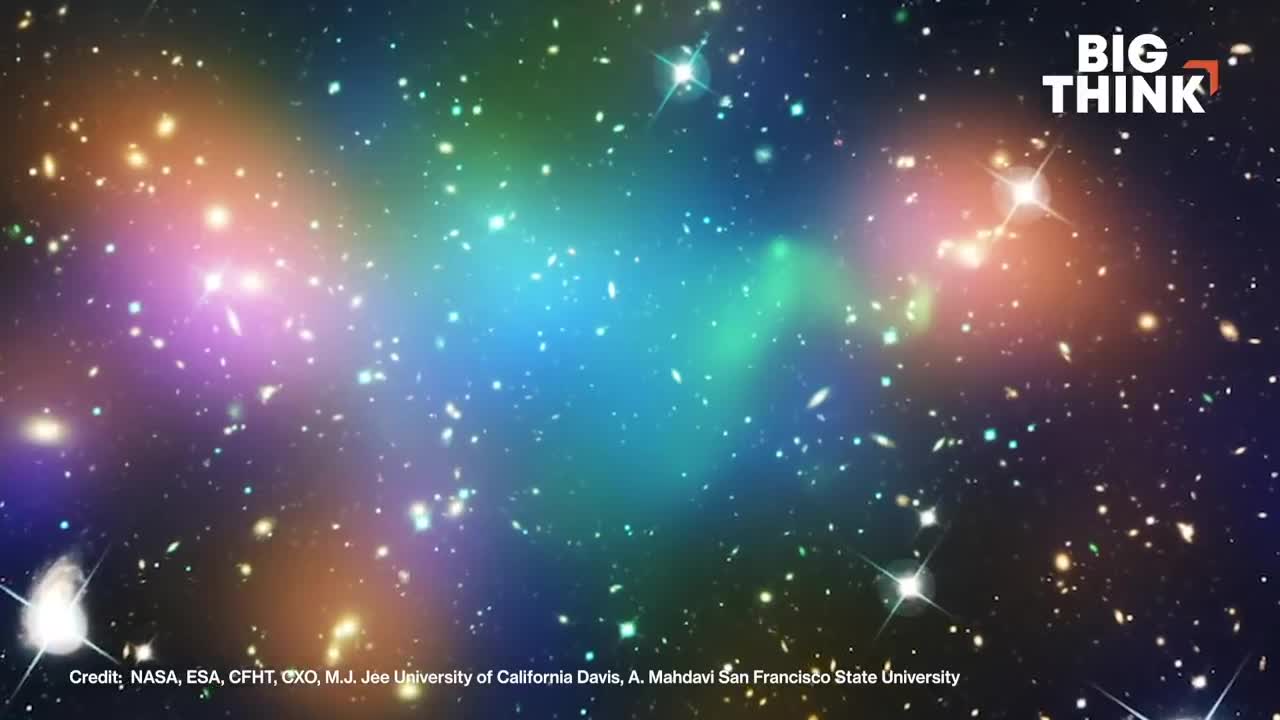Premium Only Content

Neil deGrasse Tyson: 3 mind-blowing space facts | Big Think
Neil deGrasse Tyson: 3 mind-blowing space facts
Watch the newest video from Big Think: https://bigth.ink/NewVideo
Join Big Think+ for exclusive videos: https://bigthink.com/plus/
----------------------------------------------------------------------------------
Astrophysicist Neil deGrasse Tyson joins us to talk about one of our favorite subjects: space.
In the three-chaptered video, Tyson speaks about the search for alien life inside and outside of the Goldilocks Zone, why the term "dark matter" should really be called "dark gravity," and how the rotation of the Earth may have been the deciding factor in a football game.
These fascinating space facts, as well as others shared in Tyson's books, make it easier for everyone to grasp complex ideas that are literally out of this world.
----------------------------------------------------------------------------------
NEIL DEGRASSE TYSON:
Neil deGrasse Tyson was born and raised in New York City where he was educated in the public schools clear through his graduation from the Bronx High School of Science. Tyson went on to earn his BA in Physics from Harvard and his PhD in Astrophysics from Columbia. He is the first occupant of the Frederick P. Rose Directorship of the Hayden Planetarium. His professional research interests are broad, but include star formation, exploding stars, dwarf galaxies, and the structure of our Milky Way. Tyson obtains his data from the Hubble Space Telescope, as well as from telescopes in California, New Mexico, Arizona, and in the Andes Mountains of Chile.Tyson is the recipient of nine honorary doctorates and the NASA Distinguished Public Service Medal. His contributions to the public appreciation of the cosmos have been recognized by the International Astronomical Union in their official naming of asteroid "13123 Tyson".
Tyson's new book is Astrophysics for People in a Hurry, you can check it at https://amzn.to/2zOnXX5
----------------------------------------------------------------------------------
TRANSCRIPT:
NEIL DEGRASSE TYSON: When we think of places you might find life we typically think of the Goldilocks Zone around the star where water would be liquid in its natural state. And if you get a little too close to the star, heat would evaporate the water and you don't have it anymore. It's gone. Too far away it would freeze and neither of those states of H2O are useful to life as we know it. We need liquid water. So you can establish this Green Zone, this habitable zone, this Goldilocks Zone, where if you find a planet orbiting there hey, good chance it could have liquid water. Let's look there first for life as we know it.
Now it turns out that this source of heat, of course is traceable to the sun and if you go farther out everything water should be frozen, all other things being equal. But Europa, a moon of Jupiter sitting well outside of the Goldilocks Zone is kept warm not from energy sources traceable to the Sun, but from what we call the tidal forces of Jupiter itself. So, Jupiter and surrounding moons are actually pumping energy into Europa. And how does it do that? As Europa orbits Jupiter its shape changes. It's not fundamentally different from tides rising and falling on Earth. The shape of the water system of the Earth is responding to tidal forces of the moon. And when you do that to a solid object, the solid object is stressing. And because of this, a consequence of this is that you are pumping energy into the object. It is no different from when you say to anyone who's familiar with racquet sports, indoor racquet sports. It could be racquetball or squash. You say let's arm up the ball before we start playing.
You want to hit it around a few times. You are literally warming up the ball. It's not just simply let's get loose. You are literally warming up the ball. How? You are distorting it every time you smack it and then the resilience of the ball pops it back into shape and every time you do that, every smack, you're pumping energy into the ball. It's not fundamentally different from what's going on in orbit around Jupiter. So, you have this frozen world, Europa, completely frozen on its surface but you look at the surface and there are cracks in the ice. There are ridges in the ice where there's a crack and it shifted and then refroze. So this ridge has a discontinuity in the crack and it continues in another place. So what this tells you is that Europe cannot be completely frozen because if it were nothing would be moving. You look at the surface of Europa, the frozen surface, there are like ice chunks that are shifted and refrozen and shifted again. It looks just like if you fly over the Arctic Ocean.
Fly over the Arctic Ocean in the winter...
Read the full transcript on https://bigthink.com/videos/neil-degr...
-
 42:30
42:30
BonginoReport
3 hours agoThe FBI's Worst Nightmare CONFIRMED (Ep.145) - 02/21/2025
28.1K50 -
 LIVE
LIVE
Wendy Bell Radio
4 hours agoBatting 1000
12,564 watching -
![CIA EXECUTES LARGEST MASS FIRING IN 50 YEARS - HEGSETH FIRES WOKE GENERAL [EP 4448-8AM]](https://1a-1791.com/video/fwe2/78/s8/1/e/3/n/9/e3n9x.0kob-small-CIA-EXECUTES-LARGEST-MASS-F.jpg) LIVE
LIVE
The Pete Santilli Show
16 hours agoCIA EXECUTES LARGEST MASS FIRING IN 50 YEARS - HEGSETH FIRES WOKE GENERAL [EP 4448-8AM]
1,848 watching -
 LIVE
LIVE
Jeff Ahern
1 hour agoFriday Freak out with Jeff Ahern (Chainsawing DEI)
423 watching -
 46:31
46:31
PMG
12 hours agoHannah Faulkner and Mary Flynn | REVIVING THE AMERICAN DREAM - GROWING UP A FLYNN
2.35K1 -
 3:01
3:01
Kirill MultitoolOfficial
1 day ago $5.36 earnedSurvival skills and Bushcraft HACKS in the forest!
30.6K5 -
 11:52
11:52
Dr. Nick Zyrowski
12 hours agoWhat Can I Eat On The Carnivore Diet? | Detailed Guide
30K8 -
 16:23
16:23
TSPLY
20 hours agoNew CNN / MSNBC Meltdown Moments Of Getting Mad At Donald Trump And Elon Musk
21K19 -
 30:54
30:54
Cooking with Gruel
19 hours agoCooking with Matt and Ginger Gaetz
21.2K5 -
 1:22:55
1:22:55
MTNTOUGH Fitness Lab
21 hours agoHomeland Security Pulls Us Off The Plane! Jaw-Dropping Moments from MTNTOUGH's 2024 Ibex Hunt
47.3K2